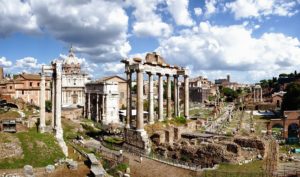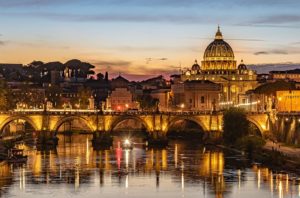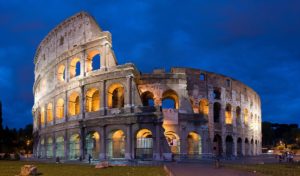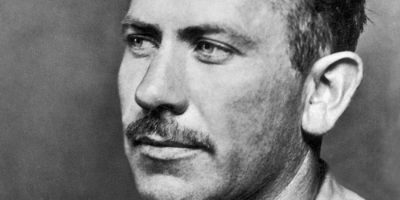The Most popular Roman Emperors
Ten Caesars
In truth, the emperors of Rome were many more than ten.
The dynasties that gave life to all the Roman emperors were four.
Among which we have the Giulio Claudii, Flavii, Antonini and Severi.
1. Augustus the founder of Rome

Roman coins by Papazachariasa – Pixabay
Augustus was the first Roman emperor.
He ruled Rome between 31 BC and 14 AD approximately.
He came from a family of knights from Velitrae, a small town near Rome.
His father was praetor and then senator.
He took part in the Spanish campaign and completed his military studies in Epirus.
He had been adopted as a son by Caesar and for this, he wanted to avenge the death of his adoptive father.
On January 16 27 BC, he assumes the honorary title of Augustus conferred on him by the Senate. The name took the form “Imperator Caesar Divi filius Augustus“. The name of Augustus is used by historians to refer to him in the period between 27 BC and his death.
2. Tiberius the Roman tyrant

By Marcel Roblin – Wikimedia
Following the funeral of Emperor Augustus, he was declared as “divinity“.
His adopted son Tiberius Julius Caesar addressed the Senate.
He did not want to follow his adoptive father’s political career. He was a soldier and wanted to pursue his career.
Tiberius divided his father’s powers into three: Rome, the legions and the provinces.
The Senators were against the division of powers.
Publius Cornelius Tacitus called him a “tyrant” because he rewarded traitors and forgeries.
Tacitus had described his last years as “dark“. People ended up on trial very easily during his reign.
3. Nero and the fire of Rome

By Bert Kaufmann-wikimedia
Nero is also known as Nerone.
He was the descendant of a noble Roman family and the great-grandson of Octavian Augustus.
Nero became emperor after the death of Claudius. The
“quinquennium Neronis” has been described as a happy time for Rome.
During the first five years, he followed a policy in favour of the Senate. His intent was to guarantee the privileges and wealth of the Senate and the liberated class.
In 64 the Roman city was destroyed by a fire and he took the opportunity to build a palace, the Domus Aurea.
Nero went down in history as a cruel tyrant due to his provisions. These measures led to the alienation of some social classes.
4. Vespasian

Rome by Nimrod Oren – Pixabay
He was the founder of the Flavian dynasty was the ninth emperor of Rome.
He had a long military career and eventually became a praetor.
During his empire, he managed to restore the finances of the city of Rome.
He favoured the cultivation of fallow fields and other activities for the benefit of the citizens.
He began the construction of the Flavian Amphitheater also known as the Colosseum.
5. Trajan the best emperor

Rome by Kookay – Pixabay
Also known as Marco Ulpio Nerva Traiano.
He brought Rome to its maximum splendour.
He was a great legislator and administrator.
The epoch of Trajan is also known as the “Golden Age”.
He was also referred to as “Optimus Princeps”.
6. The Greek emperor

Heart of Rome by Andrea Spallanzani – Pixabay
Publio Elio Traiano Adriano also known as Adriano, was emperor of Rome from 117 to his death.
During his empire, he took care of improving the conditions of the military and had Hadrian’s Wall built in Britain.
Without forgetting the construction of public buildings in many places such as theatres, amphitheatres, ports and streets.
7. The philosopher of Rome

Rome – by Claudio Hirschberger – Unsplash
Marcus Aurelius was emperor of Rome until about 180, the year of his death. As soon as Marco Aurelio was elected emperor, he associated his adoptive brother Lucio Aurelio Vero Commodus with his command.
He is remembered for his passion for philosophy and when the East, Germany and Britain rebelled forcing Marcus Aurelius to go to war. During the campaign against Quadi and Marcomanni, he wrote “Conversations with himself”.
8. Septimius Severus, the African emperor

Colosseum
Image: Wikimedia
9. Diocletian

Arch of Titus – by Jebulon – Wikimedia Commons
He was born into a family of humble origins from the Roman province of Dalmatia.
He managed to climb the ranks of the Roman army to become commander under the empire of Marcus Aurelius.
During his empire, he chose his fellow soldier Maximian as a collaborator and co-emperor.
He bestowed on him the title of Augustus and awarded him half of the western empire of Rome.
10. Constantine and Christianity

Rome by Nimrod Oren – Pixabay
Known by the name of Flavius Valerius Constantinus was called “The Great”.
As a boy he followed his father to Britain and on his death, he was acclaimed emperor of the army but was not recognized by Galerius.
He was Roman emperor from 306 to 337 BC.
In 324 he remained the only emperor of Rome. He had his name attributed to ancient Byzantium and made it his capital thanks to its strategic and economic position.
During his mandate, he implemented a radical reform of the powers of the prefects and the praetorium. He kept the administrative and legal management in his hands.
Without forgetting that he founded the monetary system.
In honour of him, the triumphal arch was erected at the Flavian Amphitheater which you can still admire today.
The arch has three arches and is decorated with Trajan, Antonian and Hadrianic reliefs.
Christianity in Rome
The Edict of Milan in 313 legitimized Christianity as all the other religions professed in the Roman Empire.
With the first Council of Nicaea, Christianity was then consolidated. Thanks to his reforms he allowed and favoured the spread of Christianity in the empire.
Planning a trip to Paris ? Get ready !
These are Amazon’s best-selling travel products that you may need for coming to Paris.
Bookstore
- The best travel book : Rick Steves – Paris 2023 – Learn more here
- Fodor’s Paris 2024 – Learn more here
Travel Gear
- Venture Pal Lightweight Backpack – Learn more here
- Samsonite Winfield 2 28″ Luggage – Learn more here
- Swig Savvy’s Stainless Steel Insulated Water Bottle – Learn more here
Check Amazon’s best-seller list for the most popular travel accessories. We sometimes read this list just to find out what new travel products people are buying.










